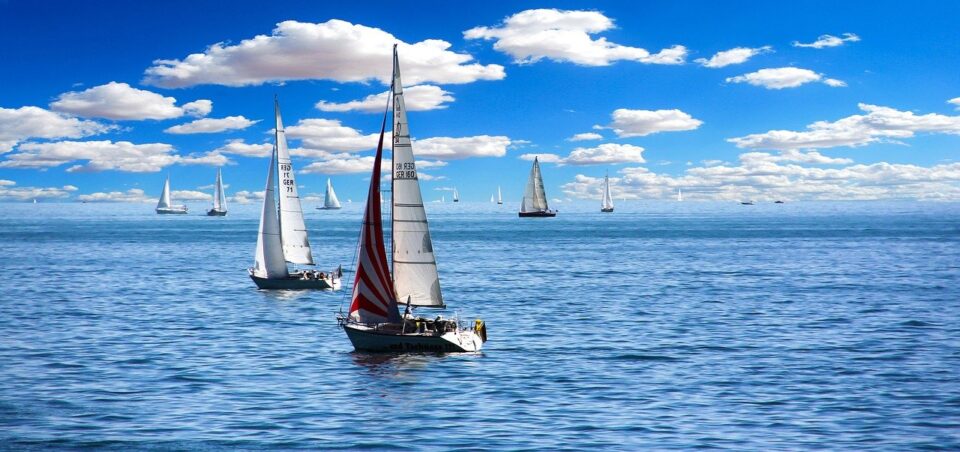Boating for leisure reasons has long been a popular pastime that provides people with the freedom to explore and time to relax along tranquil rivers or on the open water of the ocean. Going on long or short-term boat trips are ideal for getting away from the stress of everyday life and are well known for having a positive impact on physical and mental health.
There are plenty of benefits to buying or renting a boat, however, if you are relatively new to boating then it is reasonable to have some anxiety over your inexperience. To help make your boat trips fun and safe, here are some important tips you should take on board.
Insurance Is A Must
Unfortunately, boating accidents do happen sometimes, resulting in personal injuries and damage to property so before you hit the water it is essential that you get insured. There are many types of boat insurance available with policies to cover various types of boat including specialty yachts and smaller crafts. Insurance policies for boats typically cover losses due to collision, natural disasters and theft, however before choosing which insurance to get it is recommended to read the details carefully as well as reviews from previous customers.
Take a Boating Safety Course
One of the best ways to reduce the risk of accidents whilst out on a boat trip is to take some courses on boating safety to make sure you know the basics of operating a boat safely. In most states, it is mandatory to complete a boating education and safety course in order to get a boating license, although many of these courses only cover the basics and are available online.
The BoatUS Foundation offers online courses including free basic training courses as well as paid courses on more advanced topics such as training on how to use AIS or GPS and how to prepare for a hurricane. The foundation also has in-person training courses which are the best bet for getting hands-on boating experience, however, these courses may be limited depending on which state you live in.
Prepare Accessories and Equipment
Once your training is out the way, it is time to think about what fun activities you would like to do whilst on your boat with some popular choices being fishing, stopping somewhere to camp, snorkeling, wakeboarding, scuba diving, stand-up paddleboarding, kayaking, and riding tow-toys.
After deciding on an itinerary for your boat trip, take some time to make a list of all the boating accessories and equipment you will need to pack so you are fully prepared to make the most of your surroundings.
Check The Weather Before Sailing
Weather conditions can have a big impact on both the enjoyment and safety of a journey by sea. Before departing, be sure to check weather forecasts for storms, large waves, high winds, and extreme snaps of cold or heat. In addition to taking the advice of weather forecasters, several signs also point to bad weather approaching, these include:
- Clouds with a flat appearance that are becoming lower and thicker
- Dark and threatening clouds
- An increasing wind speed
- Flashes of lightning on the horizon
- Heavy seas
- Puffy clouds that are quickly rising vertically
Safety Precautions
As mentioned earlier, safety is paramount when traveling by sea as assistance is often hours away at least. To make the fun of a boat trip safer, all boats should carry life jackets otherwise known as personal flotation devices (PFDs) in case of emergencies. Although PFDs all share the same purpose, their effectiveness is determined by the fit, type, and use.
Follow a Checklist Before Departure
Packing and preparing a boat in a hurry can make a trip stressful and increase the risk of accidents, therefore it is wise to start planning early by creating a pre-departure checklist. This should detail the required safety checks as well as list all the essential items you need to stow such as food and water.
You should also prepare a checklist for the end of a boat trip and allow extra time to complete as there are several important tasks that shouldn’t be skipped or rushed including securing the boat at the dock, cleaning it, and carrying out maintenance checks.
Go On Short Trips First
It can take time to get into the boating lifestyle, so rather than planning long trips, it is advised to ease yourself into it and grow confidence by going on shorter journeys before gradually building up to overnight camping trips and long-distance cruises. Taking small steps will help you to learn the practical side of sailing quickly and how to deal with different situations.
Taking to the lakes, rivers, or ocean on your own boat can be a rewarding experience leaving you with plenty of fond memories, however, prior to setting sail, it is vital that you have a good understanding of boating and the useful tips out there that will make sure it is fun and safe.

